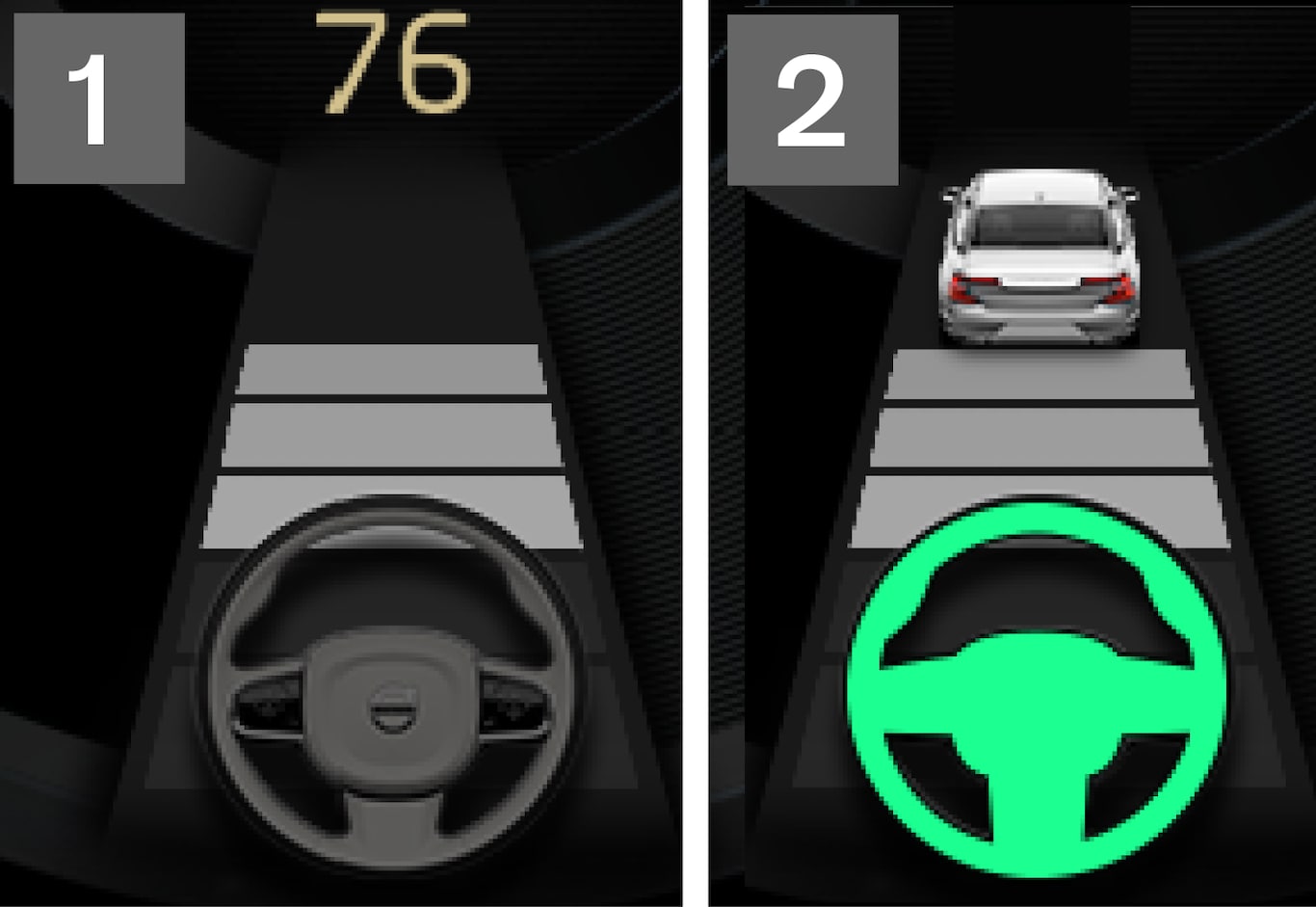Pilot Assist
Pilot Assist can help you to steer your vehicle between the lane markings, as well as maintain a preset speed or distance to the vehicle ahead. This function can also help you to maintain an even line on the roadway by keeping track of the lane lines.
What does Pilot Assist do?
- Can help to keep the vehicle within its lane by assisting steering in some cases.
- Can help to maintain a preset speed or the distance to the vehicle ahead by means of acceleration and braking operations.
How do I know that Pilot Assist is on?
Symbols in the vehicle's instrument panel let you know when the function is on.
When the steering wheel in the middle is gray, Pilot Assist is on but steering assistance is not active.
When the steering wheel is green, Pilot Assist is on and steering assistance is active.

 When the steering wheel symbol in the instrument panel is green, Pilot Assist is helping you to steer.
When the steering wheel symbol in the instrument panel is green, Pilot Assist is helping you to steer.Lane Keeping Aid
Lane Keeping Aid1 can provide steering assistance and/or a warning to the driver when the vehicle is about to leave its lane unintentionally. The function is active between 65-200 km/h (40-125 mph) on roads with clearly visible side markings.
What does Lane Keeping Aid do?
- Lane Keeping Aid can provide the driver with steering assistance, steering the vehicle back into its lane and/or providing warnings using acoustic signals or steering wheel vibration.
How do I know that Lane Keeping Aid is on?
Symbols in the vehicle's instrument panel show the function status.

Gray symbol in the instrument panel means that the function is on but that the conditions for LKA have not been met.

White symbol in the instrument panel means that the conditions for LKA have been met and that the function is available.

Orange symbol in the instrument panel means that LKA provides steering assistance back into the lane and/or gives a warning with sound or vibration in the steering wheel.
Warning
Warning
- The function is supplementary driver support intended to facilitate driving and help make it safer – it cannot handle all situations in all traffic, weather and road conditions.
- The driver is advised to read all sections in the Owner's Manual about this function to learn of its limitations, which the driver must be aware of before using the function.
- Driver support functions are not a substitute for the driver's attention and judgment. The driver is always responsible for ensuring the vehicle is driven in a safe manner, at the appropriate speed, with an appropriate distance to other vehicles, and in accordance with current traffic rules and regulations.